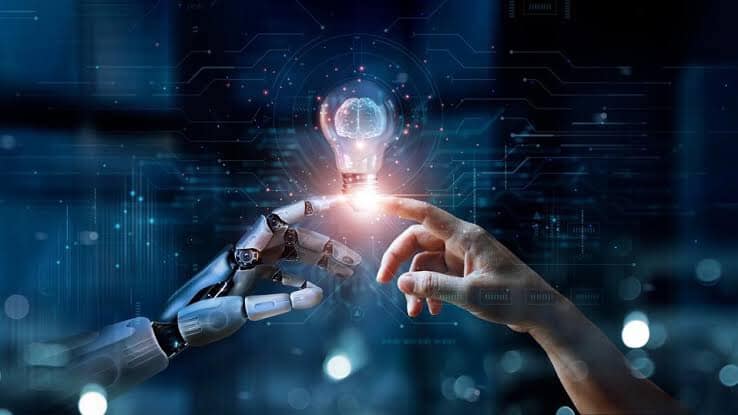Top 10 AI Applications for Business
The applications of AI continue to evolve and expand, offering innovative solutions to address complex business challenges. Here is the sample list of 10 AI applications that helps in transforming various aspects of business operations.
1. Natural Language Processing (NLP)
Natural Language Processing (NLP) is a branch of artificial intelligence (AI) that focuses on enabling machines to understand, interpret, and respond to human language.
By automating customer support, analyzing feedback, and conducting sentiment analysis for market research NLP plays a crucial role in business development. Businesses can improve customer experience, reduce costs, and gain valuable insights with it.
NLP-powered chatbots and virtual assistants provide automated and efficient customer service, while sentiment analysis helps gauge customer opinions and preferences.
With NLP, businesses can unlock the power of language, enhance communication, and make data-driven decisions to stay ahead in the competitive landscape.
2. Chatbots and Virtual Assistants
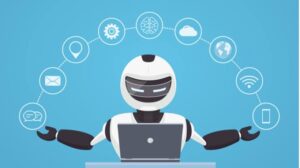
Chatbots and virtual assistants are AI-powered applications that revolutionize customer service and support for businesses.
These intelligent software programs interact with customers in a conversational manner, answering queries, providing information, and assisting with basic tasks.
They streamline customer service processes, reduce costs, and free up human resources to focus on more complex issues. With their ability to handle high volumes of inquiries simultaneously, chatbots and virtual assistants improve efficiency and scalability.
3. Predictive Analytics
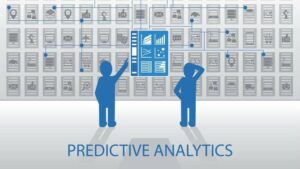
AI algorithms can analyze large datasets to identify patterns and make predictions, helping businesses forecast demand, optimize pricing, manage inventory, and make data-driven decisions.
Businesses can also forecast demand, optimize pricing strategies, manage inventory efficiently, and make data-driven decisions with the help of this.
This enables them to stay ahead of the competition, minimize risks, improve operational efficiency, and maximize profitability.
4. Recommendation Systems
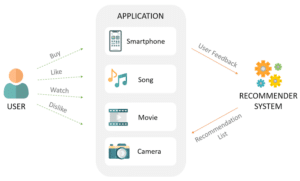
AI-powered recommendation systems analyze customer behavior and preferences to provide personalized recommendations, enhancing user engagement and driving sales for e-commerce and content platforms.
The recommendation systems can analyze vast amounts of data, including purchase history, browsing patterns, and demographic information, to deliver tailored suggestions to users.
5. Supply Chain Optimization
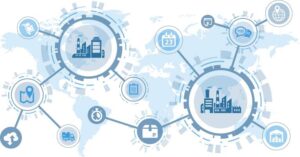
AI can optimize supply chain operations by analyzing data on inventory levels, demand forecasts, transportation routes, and production schedules. It helps businesses streamline processes, reduce costs, and improve delivery times.
They can detect process bottlenecks, improve delivery times, and increase customer satisfaction by using this research to identify bottlenecks, optimise processes, and make data-driven decisions.
6. Personalized Marketing

AI-powered marketing platforms are revolutionizing the way businesses connect with their target audience.
Businesses may generate customised adverts, offers, and content that appeal to specific clients by using AI to analyse their interests, behaviours, and purchasing patterns.
This not only enhances customer engagement and satisfaction but also improves marketing return on investment (ROI).
7. Robotic Process Automation (RPA)
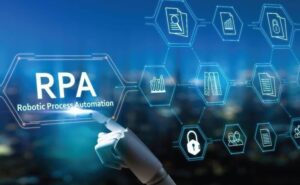
RPA utilizes AI and machine learning to automate repetitive and rule-based tasks, freeing up human resources for more complex and creative work, leading to increased productivity and efficiency.
RPA robots may mimic human activities on computer systems and quickly and accurately complete jobs like data entry, form filling, and report generating. This technique increases output, lowers mistake rates, and optimises resource use.
8. Autonomous Vehicles
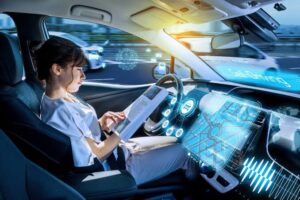
In order for self-driving automobiles and autonomous vehicles to detect their surroundings, make judgements, and travel safely, AI is essential.
Autonomous vehicles provide increased efficiency, higher safety, and lower operating costs by doing away with the need for human drivers.
This technology has the potential to transform transportation and logistics industries. Autonomous vehicles can enable new business models, such as on-demand transportation services and last-mile delivery solutions.
9. Image and Video Analysis
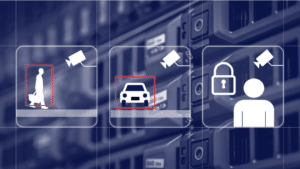
Businesses can now comprehend and analyse photos and videos, opening up a wide range of applications in several sectors. Businesses can automate quality control procedures, find manufacturing irregularities, and enhance product inspections by using computer vision technologies.
Image analysis enhances inventory management and enables visual search capabilities for customers. Additionally, AI-powered video analysis aids in surveillance and security by detecting unusual activities in real-time.
10. Fraud Detection
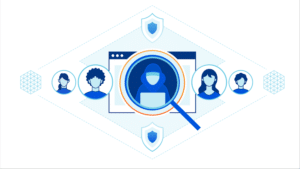
AI algorithms can detect and prevent fraudulent activities by analyzing vast amounts of data in real-time, minimizing financial losses and ensuring secure transactions for businesses.
It identifies and prevents fraudulent activities efficiently. With its ability to analyze vast amounts of data swiftly, Fraud Detection enables businesses to detect patterns, anomalies, and suspicious behaviors, thereby minimizing risks.

